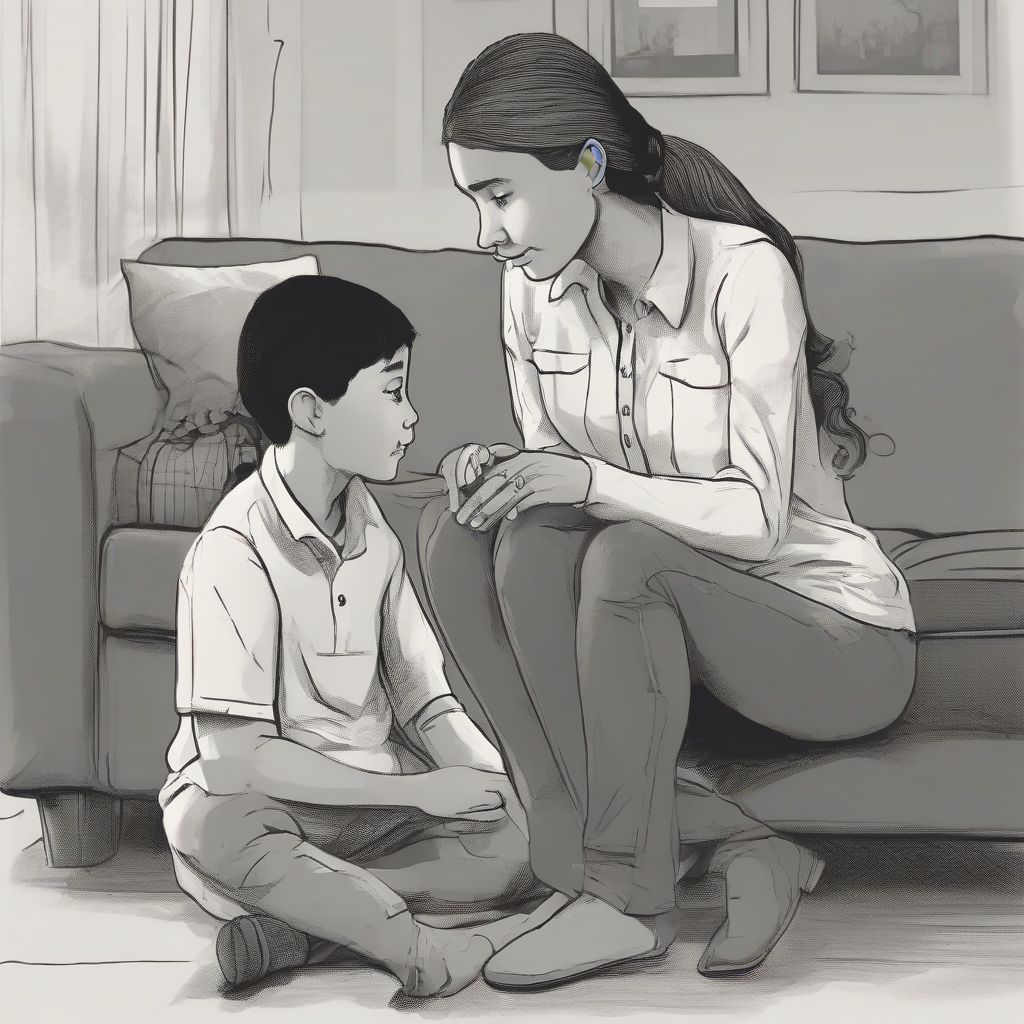 The Future of Mindful Communication
The Future of Mindful Communication
Imagine a world where parent-child interactions are characterized by empathy, understanding, and open dialogue. A world where conflicts are resolved peacefully, and children feel heard and validated. This is the promise of mindful communication in parenting practices, a transformative approach that is shaping the future of how we raise our children.
Understanding Mindful Communication in Parenting
Mindful communication goes beyond simply talking and listening. It’s about being fully present in the moment, paying attention to our own emotions and those of our children, and responding with intention and empathy. It’s about creating a safe and supportive environment where children feel comfortable expressing themselves freely, knowing that their feelings will be heard and respected.
This approach recognizes that children, regardless of their age, have valid feelings and perspectives. It encourages parents to shift from a place of judgment and control to one of curiosity and understanding. Instead of reacting impulsively to challenging behaviors, mindful communication empowers parents to respond thoughtfully, considering the underlying needs and emotions driving their child’s actions.
The Benefits of Mindful Communication
The benefits of mindful communication extend far beyond the parent-child relationship. They have a ripple effect, impacting a child’s emotional well-being, social skills, and overall development.
Enhanced Emotional Intelligence
Children raised with mindful communication develop a stronger sense of self-awareness and emotional regulation. They learn to identify and express their emotions in healthy ways, leading to increased self-confidence and resilience.
Stronger Parent-Child Bonds
When parents practice mindful communication, they create a foundation of trust and respect within the relationship. Children feel seen, heard, and understood, fostering a deeper emotional connection with their parents.
Improved Conflict Resolution Skills
Mindful communication provides children with the tools they need to navigate conflicts peacefully and respectfully. By learning to listen actively and empathize with others, children develop essential skills for healthy relationships throughout their lives.
The Future of Mindful Communication: Emerging Trends
As technology continues to shape our lives, the principles of mindful communication are becoming increasingly relevant in the digital age. The future of mindful communication in parenting practices will likely be shaped by several emerging trends:
Integrating Technology Mindfully
While technology can be a source of distraction, it can also be a valuable tool for promoting mindful communication. From apps that encourage mindful breathing to online platforms that facilitate family meetings, parents can leverage technology to enhance their communication skills and connect with their children in meaningful ways.
Emphasizing Social-Emotional Learning (SEL)
Schools are increasingly recognizing the importance of SEL in fostering children’s emotional intelligence and social skills. As SEL programs become more prevalent, parents can play a vital role in reinforcing these principles at home, creating a consistent and supportive environment for their children’s emotional growth.
Cultivating Cultural Sensitivity
In an increasingly diverse world, it’s crucial for parents to approach communication with cultural sensitivity. Mindful communication encourages parents to learn about and respect different cultural norms and values, fostering inclusivity and understanding within their families and communities.
Tips for Practicing Mindful Communication
Incorporating mindful communication into your parenting practices doesn’t require a complete overhaul of your approach. Start by making small, intentional changes in your daily interactions with your children:
Practice Active Listening
Give your child your undivided attention when they’re speaking. Put away distractions, make eye contact, and reflect back on what you hear to ensure you understand their perspective.
Validate Their Feelings
Let your child know that their feelings are valid, even if you don’t agree with their behavior. Avoid dismissing or minimizing their emotions. Instead, offer empathy and support.
Use “I” Statements
When expressing your own feelings, use “I” statements to communicate your perspective without blaming or accusing your child. For example, instead of saying “You’re making me angry,” try “I feel frustrated when…”
Take Time to Connect
Schedule regular family time where you can connect with your children without distractions. Engage in activities you all enjoy, and encourage open and honest communication.
Be Patient and Compassionate
Learning mindful communication is a journey, not a destination. Be patient with yourself and your child as you navigate challenges and celebrate successes together.
Resources for Further Exploration
For those seeking to deepen their understanding and practice of mindful communication, numerous resources are available:
- Books: “Peaceful Parent, Happy Kids” by Dr. Laura Markham, “The Whole-Brain Child” by Dr. Daniel Siegel and Dr. Tina Payne Bryson
- Websites: MindfulParentingTips.org, The Center for Mindful Parenting
- Apps: Calm, Headspace, Insight Timer
Conclusion
The future of mindful communication in parenting practices is bright. By embracing empathy, understanding, and open dialogue, we can create a world where children feel heard, valued, and empowered to reach their full potential. Let’s strive to raise a generation equipped with the skills to navigate the complexities of life with emotional intelligence, compassion, and resilience.
Start incorporating mindful communication into your parenting practices today and witness the transformative impact it has on your relationship with your child and their future.
[amazon bestseller=”mindful parenting”]
Remember, every interaction is an opportunity for connection. By choosing mindful communication, we can create a more peaceful and fulfilling future for ourselves and the next generation.
